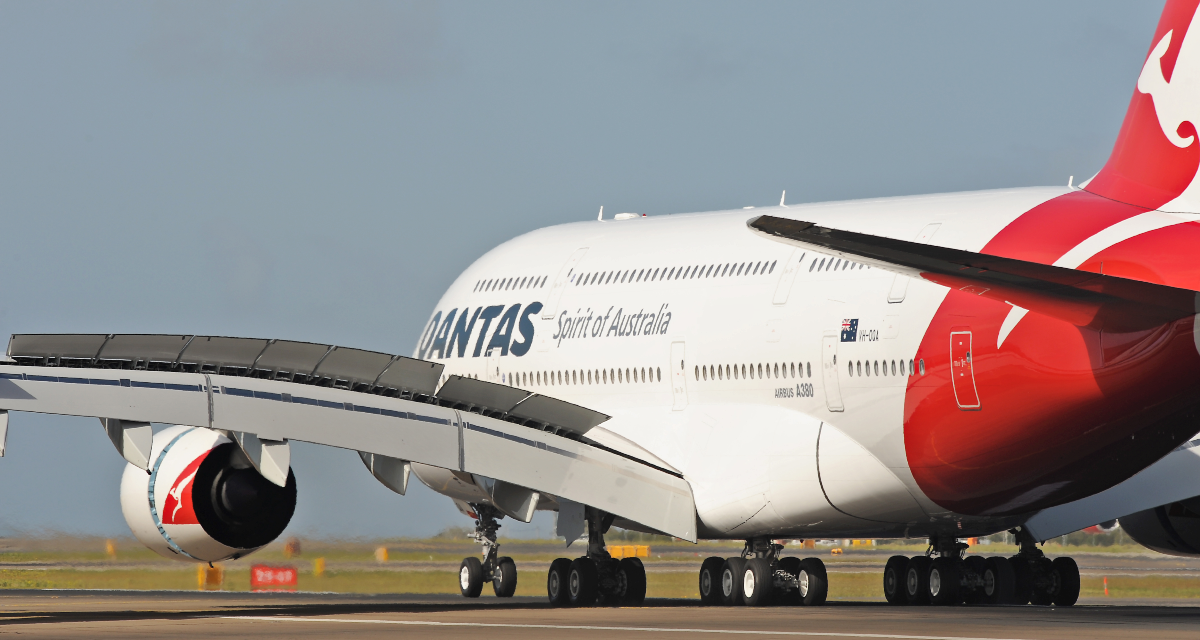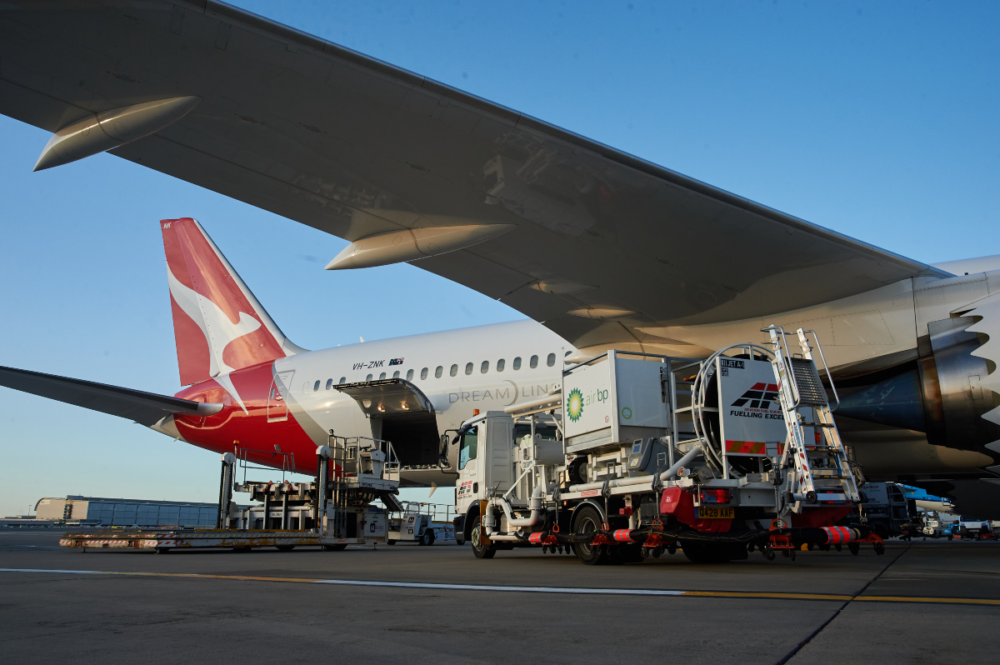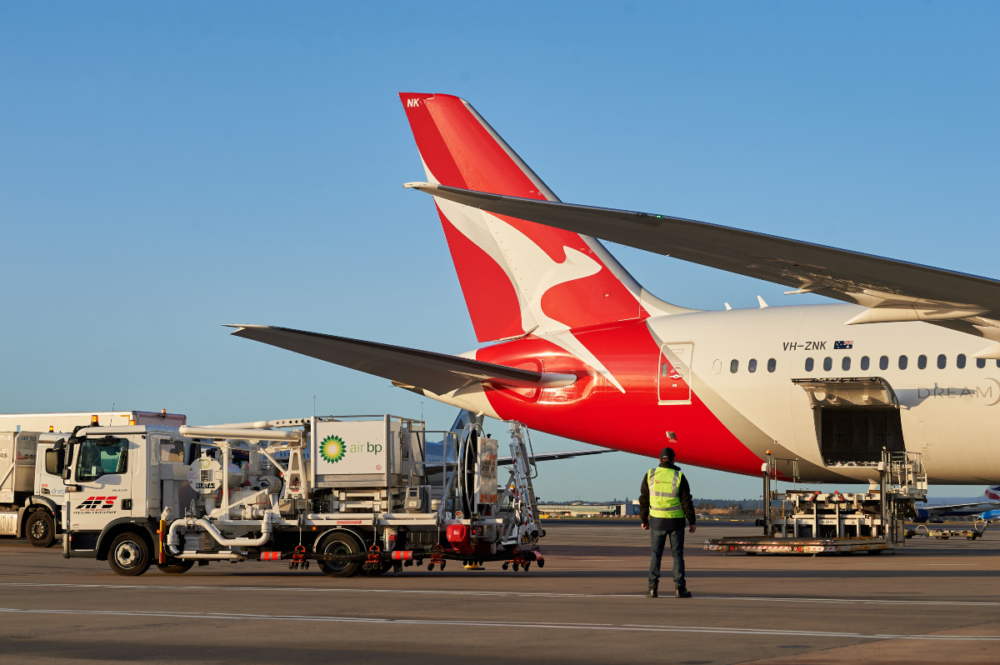Qantas is making good on a previous promise to increase its investments in sustainable aviation fuel (SAF). The Australian airline will start using blended SAF on its flagship London flights from January. The environmentally friendly choice will see Qantas' carbon emissions on its London flights fall by 10%.
Qantas to buy 10 million liters of SAF across 2022
Qantas has confirmed signing an agreement with bp to buy 10 million liters of SAF across 2022. There are options for further deliveries in 2023 and 2024. Qantas says the deal covers up to 15% of the airline's annual fuel use out of London.
"Zero-emission technology like electric aircraft or green hydrogen are still a very long way off for aviation, and even further away for long-haul flights like London to Australia. SAF and high-quality carbon offsetting are therefore critical on the path to net-zero," says Qantas Group Chief Sustainability Officer Andrew Parker.
“Aviation biofuels typically deliver around an 80% reduction of greenhouse gas emissions on a lifecycle basis compared to the jet fuel it is replacing and is the most significant tool airlines have to reduce their impact on the environment."
Qantas is also taking to SAF suppliers at other airports with an eye to implementing similar deals. Recently, the airline joined other oneworld airlines in signing a memorandum of understanding to use SAF for flights from San Francisco from 2024. Sustainable aviation fuel is several times more expensive than traditional kerosine-based jet fuel. Teaming up with other airlines is one way to bring the costs down.
Stay informed: Sign up for our daily and weekly aviation news digests.
Sustainable aviation fuels a critical tool in the carbon emissions toolbox
Aviation accounts for around 2% of the world's carbon dioxide emissions, producing approximately 915 million tonnes in 2019. The aviation industry is a relatively small contributor overall. However, that contribution to overall carbon emissions is rising and airlines are under pressure to address the problem.
Qantas CEO Alan Joyce recently told CAPA's Asia-Pacific Aviation Summit that SAFs were critical to airlines reducing their carbon emissions in the short to medium term. He sees SAF as one tool in the carbon emissions toolkit but noted issues still surround SAFs regarding the expense, production volumes, and infrastructure.
Qantas says their SAF will be produced with certified bio feedstock from used cooking oil and/or other waste products. But Mr Joyce also says airlines need to manage their increasing use of SAFs carefully to avoid unforeseen problems.
"There could be unintended consequences with SAF, such as taking away from food stocks," he said. "We have to be very careful of that and we have to get that right."
Long-haul specialist Qantas in the carbon emissions spotlight
The Qantas boss says SAF can be used in conjunction with high-quality carbon offset programs and new fuel-efficient planes to make inroads in the airline's carbon emissions.
The bulk of carbon emissions from the airline industry comes from flights of more than 1,500 kilometers. As a long-haul specialist, that puts the airline firmly in the spotlight.
"We were the second airline group after IAG to say we were going carbon neutral," said Mr Joyce. Qantas has set a 2050 date to achieve net carbon neutral status.
“Given the importance of aviation to Australia, and the distances we travel, there’s a huge opportunity to build a local SAF industry here," added Andrew Parker. "The Qantas Group would be its biggest customer and we’ve already committed $50 million in seed funding.
“We know that climate change is incredibly important for our customers, employees, and investors and it is a major focus for the national carrier as we come out of a difficult couple of years."



